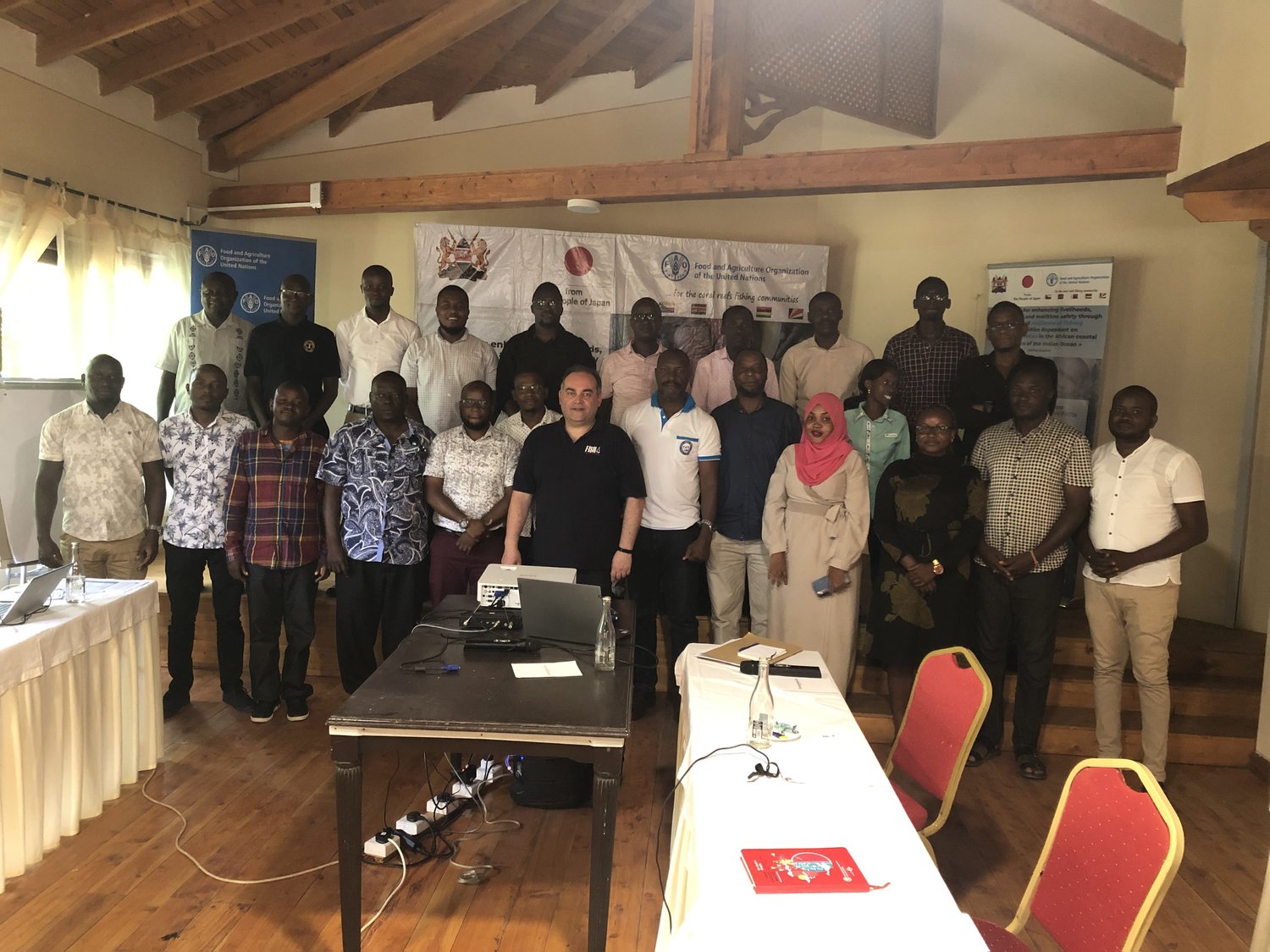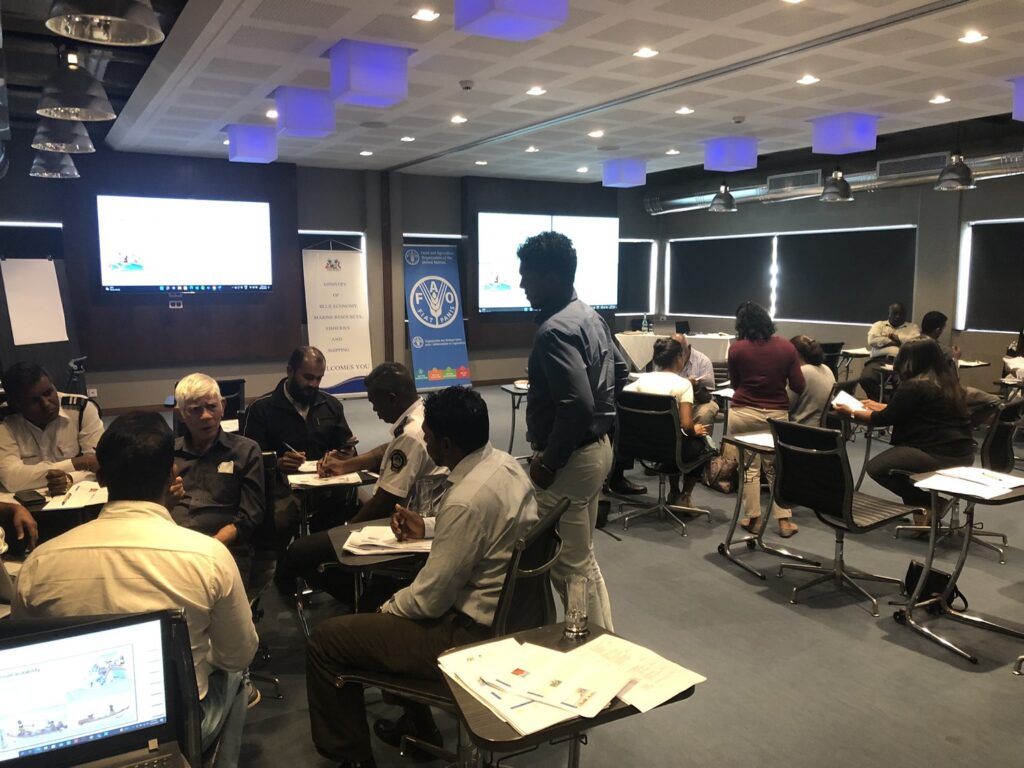
The Food and Agriculture Organization of the United Nations (FAO) and the FISH Safety Foundation (FSF) have recently successfully implemented Train the Trainer, Safety at Sea training in Kenya and Mauritius.

Kenya fishermen heading out
This initiative is part of a regional project entitled “Enhancing Livelihoods, Food Security and Maritime Safety through Increased Resilience of Fishing Communities Dependent on Coral Reef Fisheries in the African Coastal Countries of the Indian Ocean” – REEFFISH Project.
For Kenya, the in-person training sessions were held in Malindi over four days on 17, 18, 19 and 21 October 2022, with 27 participants in attendance.
For Mauritius, the in-person training sessions were held over four days in Moka between 25 and 28 October 2022, with 23 participants in attendance.
As per pre-prepared course agendas, participants were taken through ‘Train the Trainer’ introductory material and then encouraged to present specialist safety course materials, focusing on key safety risk issues in their respective regional artisanal and small scale fishing communities.
The overall aim of this initiative is to provide practical training experience to course participants who can subsequently provide safety training to local fishers in their regions. Training materials provided can be adapted to suit local conditions and safety risk factors.
The training package used for these courses covered a large range of subjects, such as preparing for emergencies at sea, small boat safety and basic engine maintenance, radio communication, survival at sea, emergency first aid, safety risk management, marine traffic rules, and trainer fundamentals.
This training initiative is just one step for these countries to begin dealing with the issue of safety at sea for small scale and artisanal fishers in their regions. The challenge is to apply knowledge learned within local fishing communities to counter the many safety risks faced by fishers, with the overall aim of reducing harm suffered through injuries, illnesses, fatalities and loss of vessels or equipment at sea. A significant part of this will be assisting and working alongside local fishing communities to raise the awareness of key issues, with the overall aim of promoting a culture of safety at sea.

Training participants in Mauritius undertaking group work